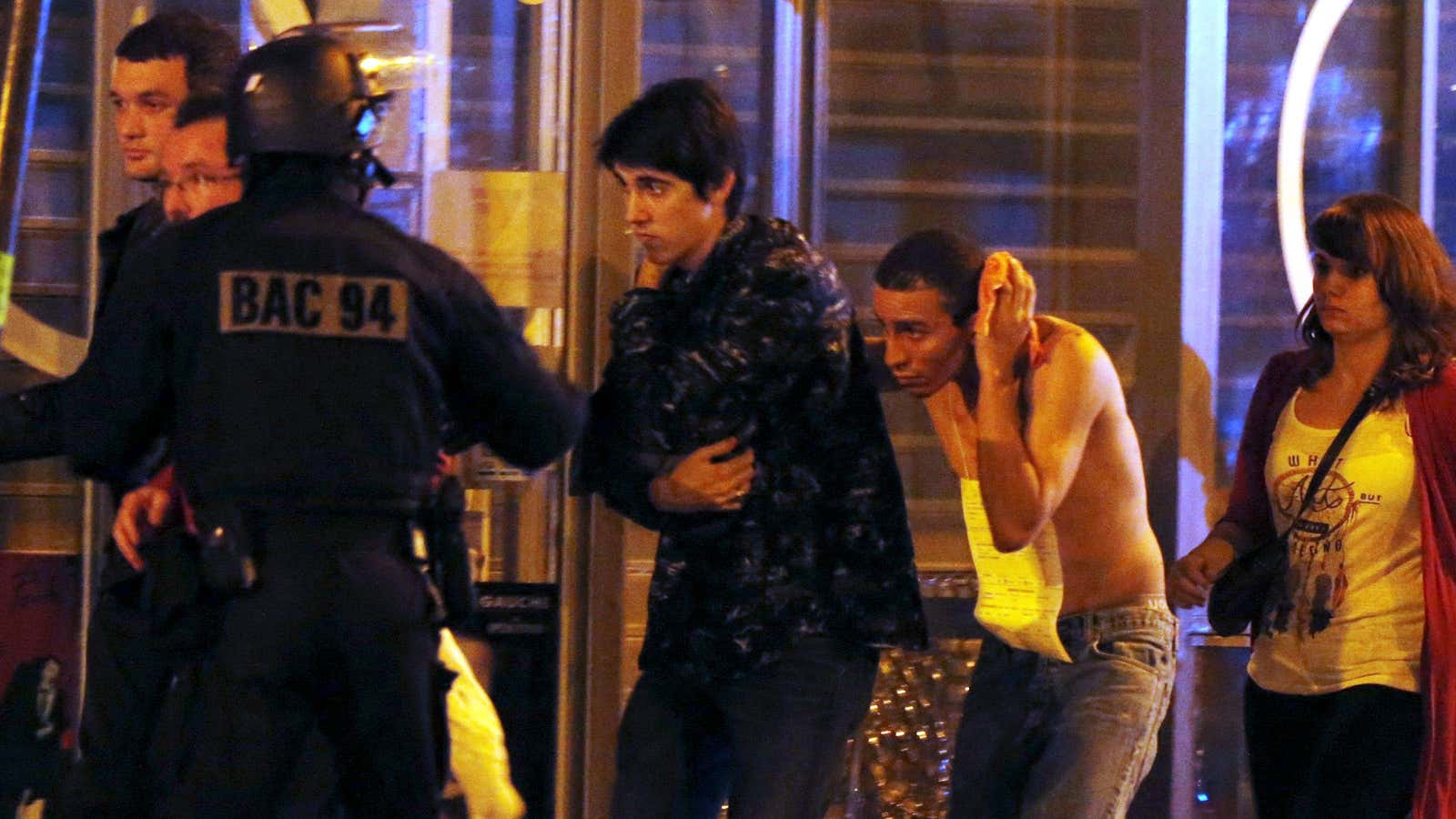Updated 9:03pm ET
French president Francois Hollande took the extreme step of closing France’s borders in the aftermath of coordinated attacks in Paris that left more than 100 dead. Later in the evening, his office announced that checkpoints would in fact remain open, but be subject to heightened security.
The president’s office said it ”clarified an earlier statement about the country’s borders,” explaining: “There will be checks but the borders will not be closed,” France24 reported.
“These operations are not over,” Hollande said in a national address, and asked that the public continue to trust in the nation’s security forces. The president cancelled a trip to Turkey on Nov. 15 for a G20 summit and called an emergency meeting of his cabinet (link in French).
In his address, Hollande announced a national state of emergency—the first time such an act has been imposed country-wide, according to Le Monde (link in French). He said he had closed the borders of the country as security services work to re-establish control of the situation in Paris. Around 1,500 soldiers have been deployed to Paris.
“We have to assure ourselves no one can enter in order to commit any act whatever that may be,” Hollande said, according to a live broadcast translation.
The cabinet issued a decree adopting additional “enhanced measures” for the Île-de-France region that includes Paris, giving officials the power to arrest people suspected of ”dangerous” behavior, to seize weapons, and to carry out searches. The decree also imposes a temporary closure of theaters and meeting halls.
The imposition of border controls represents a grim moment for Europe.
The EU is already facing unprecedented pressure from all sides on its commitment to border-free travel—a cornerstone of European integration.
The influx of migrants fleeing the crisis in Syria has caused a cascade of border restrictions in recent weeks. Starting in smaller nations such as from smaller transit countries such as Hungary, such restrictions—not wholesale closures—spread to Sweden and Germany, causing many to question the continent’s commitment to open borders.
Earlier, US President Barack Obama had spoken briefly to express his condolences and support for France, which he called the “oldest ally” of the US.
“This is an attack on all of humanity and the universal values we share,” Obama said, addressing what he called ”outrageous” attacks.
